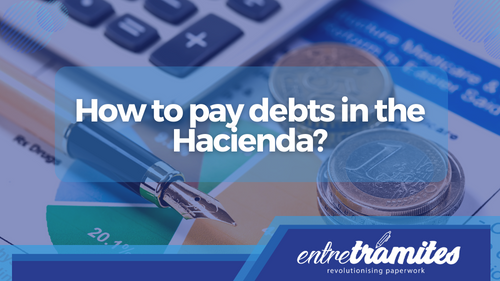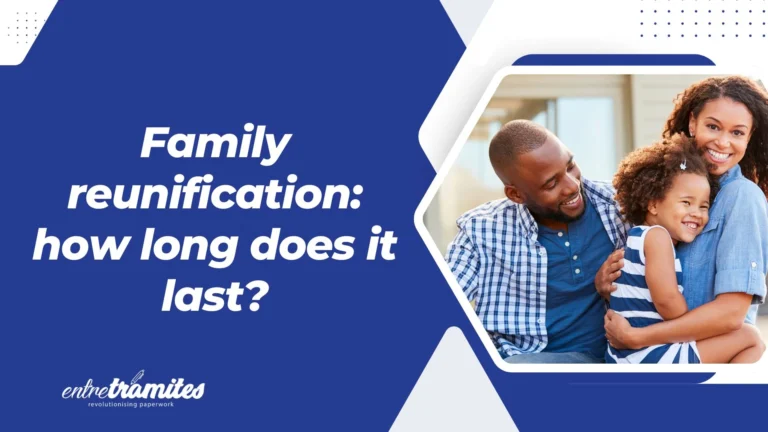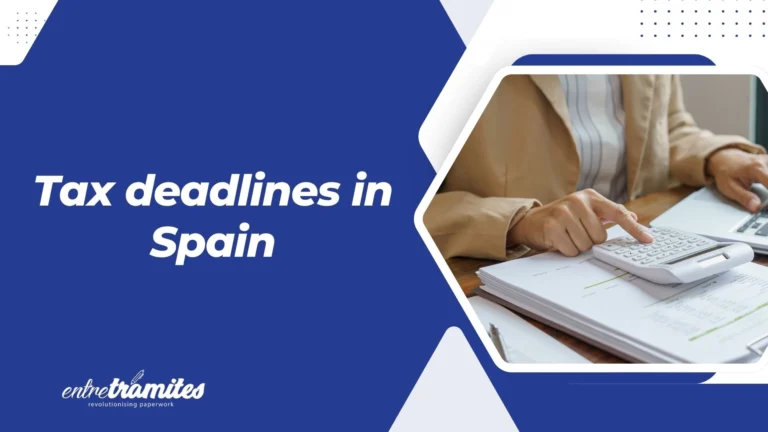The Treasury can become a headache for the self-employed, companies, and individuals, especially if they have debts that they cannot pay. That feeling can’t be avoided when you know you have to answer for a payment. However, there are strategies and tricks that will help you pay debts with Hacienda in Spain.
What debts can you have with the Hacienda?
The main debts with the Hacienda arise from:
- Non-payment of VAT: If you are self-employed or have a company, a wrong calculation of the quarterly or annual payments can cause debts with the Tax Agency.
- Debt with Social Security: Debts can also be contracted due to an error in the payment of social security contributions or due to their omission.
- IRPF: if you have not made the income statement correctly.
In addition, there are other public administrations that can claim certain payments from us, such as:
- Traffic fines from the General Directorate of Traffic or town halls.
- Municipal taxes such as the Property Tax, the mechanical traction tax, and garbage taxes. Non-payment of any of these concepts may cause a debt to the Administration.
- Inheritance tax: In certain autonomous communities it is necessary to pay when receiving an inheritance.
How to know if there is a debt with the Hacienda?
If you think you may have outstanding balances with the Treasury, you can check your tax situation via the web if you have an electronic identification certificate, electronic DNI or if you are registered in the Cl@ve PIN system. On the other hand, you can also go to any office of the Tax Agency with a prior appointment.
The 5 tricks to pay debts with Hacienda in Spain
From Entre Trámites, we present you the five tricks that you must take into account when paying your debts with the Treasury and free yourself from this situation:
1. Use debt compensation if it suits you
If you have a debt with the Treasury and your statement is returned to you, you can pay the full or partial balance of your debt with that money. This is done ex officio by the Treasury under the name of debt compensation.
You can request this compensation of debts to pay in cases such as quarterly VAT or personal income tax with the return and payment of rent.
Note: It is very important to evaluate the use of this measure. If your economic situation is complex, the money can be more useful for your solvency than leaving it in the Treasury.
A practical example to understand this type of case a bit, is if you owe 500 euros in personal income tax, but the statement gives you a refund of 1,000 euros, the Treasury may subtract 500 euros from that refund and leave the debt paid. However, if you prefer to have that money in your possession, you will have to ask them not to discount it (Remember that not paying debts with the Treasury generate arrears in value)
2. Request a debt deferment
If you do not have enough money or you cannot apply for the compensation of your debt, you can request that the Treasury defer the debt. This is a legal process supervised by the Tax Agency, which is the entity in charge of contemplating and offering taxpayers this option. It should be added that default interest (5%) continues to add up during the stipulated term.
To request the postponement of the debt, you must go to the Agency’s electronic headquarters and you will be able to propose the terms that best suit your financial situation. For its part, the Treasury may reject or accept your proposal.
If the Treasury accepts, the charges will be made to the bank account that you have indicated when making your request for deferral, from that moment you will have to comply with the agreement, otherwise the Treasury may cancel the deal and you will have to pay the entire debt in a immediate.
What debts and taxes can be deferred?
Below we present the debts that may or may not be deferred:
Debts that cannot be deferred
- Those of the retainer or obligated to make payments on account (Forms 111, 115 and 123).
- The installment payments on account of the Corporation Tax (Form 202).
- Those derived from the execution of firm dismissal resolutions suspended during the claims or appeals.
Debts that can be deferred
- IRPF installment payments for businessmen or professionals in direct or objective estimation (Forms 130 and 131).
- Annual income tax declaration. Splitting into two installments is allowed, the first until June 30 and the second on November 5. If this option is not enough, a deferral of the entire debt can be requested under the conditions established for any other tax.
- Annual declaration of Corporate Tax. Although the installment payments of this tax cannot be postponed, nothing is said about the annual settlement. Therefore, the deferral of the amount to be paid for Model 200 can be requested.
3. Cancel your debts with the Hacienda under the Second Chance Law
If you are in bankruptcy, you can take advantage of the Second Chance Law, this Law allows the taxpayer to declare himself insolvent and thus obtain the forgiveness of his debt with the Treasury, either complete or partial.
4. Get a letter of payment
If you have the money to cancel the debt, you must obtain a letter of payment and settle the debt in a bank. This letter can be requested at a collection office or electronically from the electronic headquarters of the Tax Agency page. This letter will serve as support for peace and safety.
5. Request a loan from a bank and pay it in comfortable installments
If you have a debt with the Treasury and none of the options presented above work, you will have to resort to a bank loan, as long as the interest does not exceed that obtained on the debt with the Treasury. Here we leave you an explanatory video about some of the payment methods that you can use so that you can choose the one that suits you best.
Finally, at Entre Trámites we offer various management, advisory and support services in bureaucratic processes for freelancers, SMEs, and other companies.
Do you need more information about Pay Debts in Hacienda?
At Entre Trámites we offer various services of management, advice, and support in bureaucratic procedures for self-employed, SMEs, and other types of companies.
Contact us! Through our contact form, you can leave your details for us to call you, schedule a free consultation, or simply text our WhatsApp.





